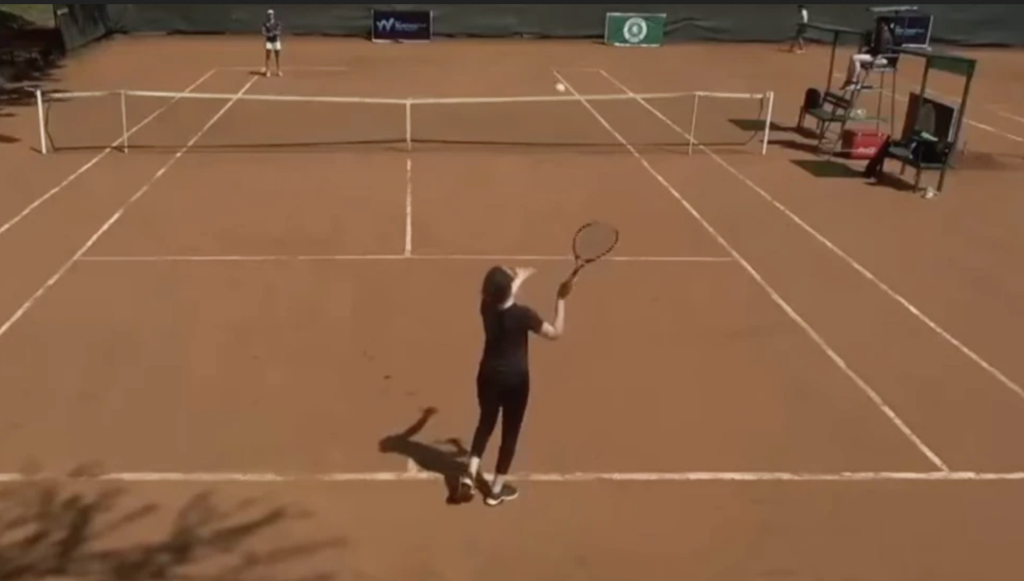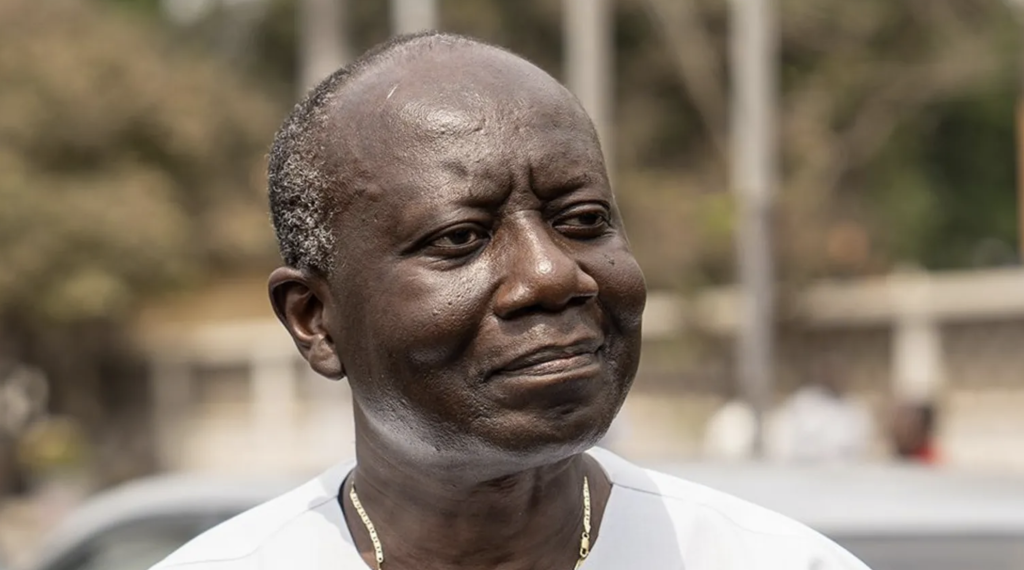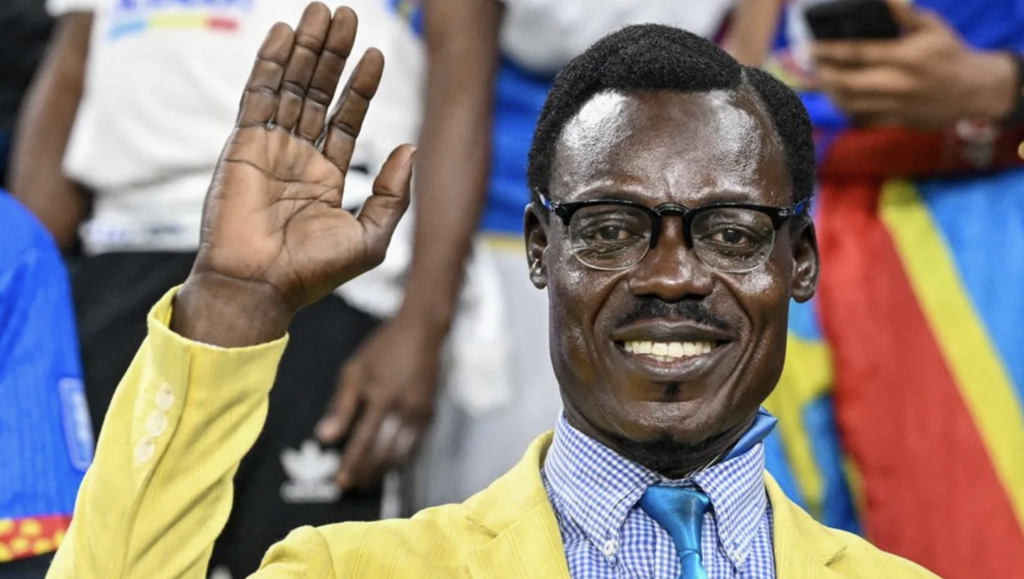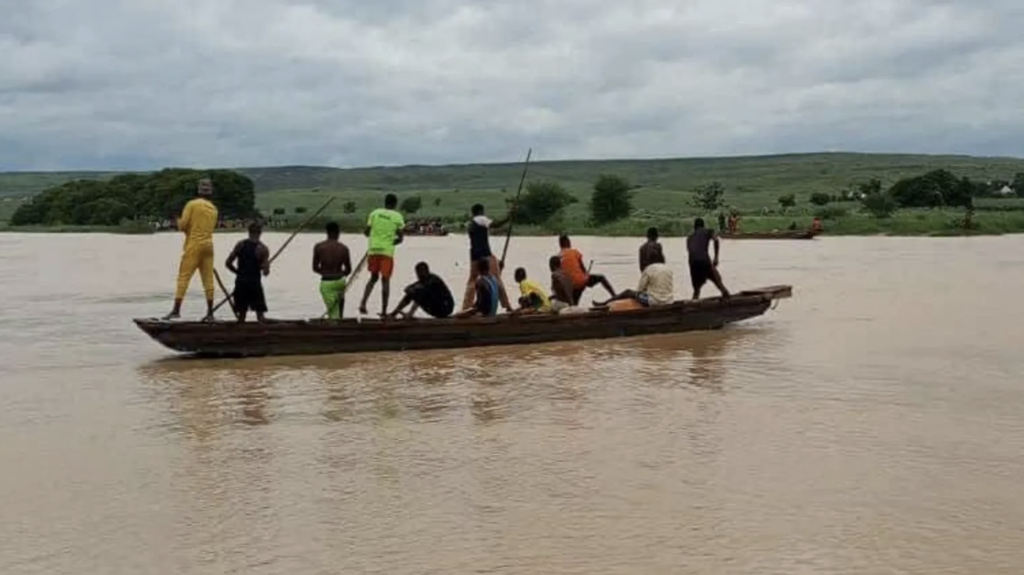South Africa minister under fire over racial slur
Written by BBC on August 20, 2025
Brash, controversial and unafraid to speak his mind, South Africa’s Sports, Arts and Culture Minister Gayton McKenzie has been swift to call out racism in others but he himself has now been branded a racist – a charge he refutes.
He is often seen as the lightning rod for the frustrations of the country’s coloured community, as people of mixed heritage are referred to in South Africa’s population census.
But old comments McKenzie made on social media, using a profoundly offensive term referring to black people, have created a political storm.
He has until the end of Wednesday to respond to the South African Human Rights Commission (SAHRC), which wants the minister to delete the offensive posts and issue a public apology, among other demands.
“Coloured” was the classification given to people of mixed heritage under apartheid. This system created a legally enforced racial hierarchy that saw white people at the top and black people at the bottom, with Indians and coloured people in between.
Despite apartheid being abolished three decades ago and the promotion of the “rainbow nation”, its bitter legacy lives on in the country’s economy and politics.
McKenzie’s Patriotic Alliance (PA) has attracted support among coloured people, winning parliamentary representation in elections last year.
“For the first time there is coloured people also going to parliament through the Patriotic Alliance,” McKenzie said, after the results were announced.
President Cyril Ramaphosa included the PA in his multi-party coalition government after his African National Congress (ANC) lost its parliamentary majority for the first time.
The ANC sees McKenzie as useful to counter the second-biggest party, the Democratic Alliance (DA), in the campaign for the coloured vote, and to address perceptions of marginalisation within the coloured community.
The group makes up about 8% of South Africa’s population.
The politician has positioned himself as the outspoken defender of their interests.
There is a feeling expressed by some in the community that under apartheid they were not white enough and now in the new era they are not black enough.
This latest row blew up in July after McKenzie took a popular podcast, Open Chats, hosted by a group of young black people, to task for derogatory remarks they made about coloured people.
The clip has since been deleted from the episode, but it did not stop some in the coloured community from going after the show’s hosts over the saga.
A criminal complaint was filed with the police and the matter was referred to the SAHRC for further investigation. The commission’s role is to address human rights violations and seek “effective redress”.
“There should be no place to hide for racists. [Whether] you are a white, black [or] coloured racist, a racist remains a racist,” McKenzie said at the height of his campaign.
But then the social media archaeologists got to work.
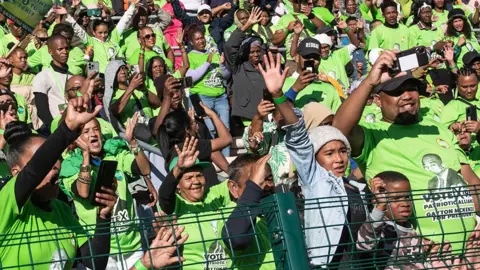
Gayton McKenzie’s Patriotic Alliance gets its support mostly from the Western Cape, where there is a large coloured community
In the posts from over a decade ago on what was then known as Twitter, he repeatedly used the highly offensive “K-word” when speaking about black people.
The “K-word” was the most vicious racial slur used to humiliate black people during the apartheid years. It is a symbol of de-humanisation.
McKenzie says he regrets the posts but has also robustly defended himself, most recently in a lengthy live video posted on his Facebook page.
“I always saw myself as black growing up… [so] I’m black and coloured, I’m mixed,” he said looking down the barrel of the camera.
The minister has described himself as a “black-skinned coloured” whose father was a mix of Japanese and Irish and mother is a black woman from the Sotho community.
Because of this, he added, when he speaks of black people he is including himself in the equation.
He also detailed how he had been part of the anti-apartheid struggle.
This reflects the view that as the fight against apartheid gained momentum, coloured people and Indians campaigned with black people against the racist system.
They understood that “if you don’t unite South Africa at a struggle level, your chances of taking over and democratising the country are very limited”, the North West University’s professor of government studies Kedibone Phago said.
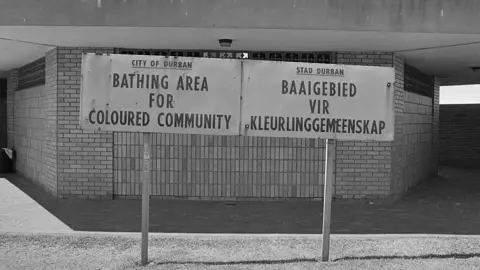
Racial segregation ended in South Africa in the 1990s
But despite the struggle bringing together different groups and then the end of apartheid itself, racial classification has remained embedded in the country.
For the majority of the population, where they live, what kind of job they have, or indeed if they have a job, and their wealth, is still largely related to which apartheid-defined race they belong to.
This is because, among other reasons, the apartheid geography that separated different races “is still very strong”, Prof Phago told the BBC.
“We just don’t know each other at all … [or] each other’s culture and habits [so] when people call us the rainbow nation, it’s just nonsense. Very few people socialise across racial barriers,” Terry Oakley-Smith, who founded the South African diversity consultant firm Diversi-T, said.
The beginning of democracy in 1994 did not wipe out racism, but “what’s unusual about this case is that it’s about a so-called coloured person using that sort of language and remarks”, Ms Oakley-Smith noted.
Both experts also raised concerns how the podcast presenters expressed themselves.
“They were terribly disappointing,” Ms Oakley-Smith said.
There has been a long-standing feeling in sections of the coloured community that in an effort to tackle the problems from the past, the democratic government has ignored their needs.
McKenzie echoed this in 2023.
“Coloured people woke up in the new South Africa and found legislation that makes it clear that they are not Africans,” he was quoted as saying.
“A clear racist separation by the ANC government. How do you even explain that because coloureds and blacks fought side by side in the struggle for freedom?”
But Prof Phago argued that this is about different communities looking for something to blame for broader problems.
He pointed to the government’s failure to take the lead in the necessary “societal transformation”.
“This is a very strong systemic problem that needs a strong developmental state to deal with because if we don’t find a way… we’ll continue to have these kind of problems.”
Ms Oakley-Smith echoed this, saying that this latest racial storm showed “there’s a lot more that needs to be done to improve race relations”.
“We have so much work to do… [and] unless we take some actions, these things are going to continue,” she noted.
McKenzie’s sports, arts and culture portfolio is supposed to promote things that bring the country together. Ironically, his divisive historical comments and his refusal to apologise has rallied citizens in the call for tougher conversations around race relations.
But he will now have to wait to see what the SAHRC will do next – and whether President Cyril Ramaphosa will keep him in the government.
